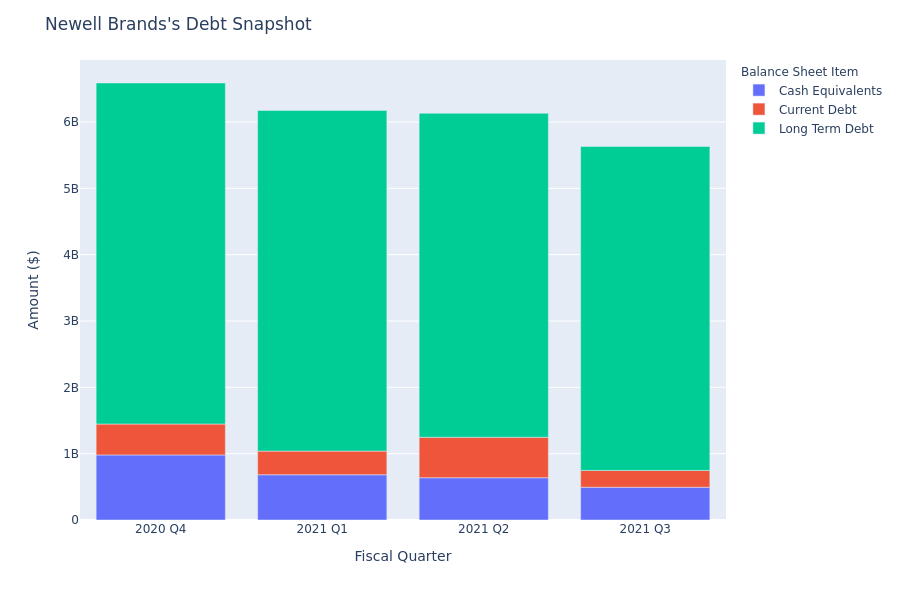
Over the past three months, shares of Newell Brands (NASDAQ:NWL) fell by 5.63%. Before having a look at the importance of debt, let us look at how much debt Newell Brands has.
Check out this: Executives Buy Around $64M Of 3 Stocks
Newell Brands's Debt
According to the Newell Brands's most recent financial statement as reported on October 29, 2021, total debt is at $5.14 billion, with $4.88 billion in long-term debt and $253.00 million in current debt. Adjusting for $494.00 million in cash-equivalents, the company has a net debt of $4.64 billion.
Let's define some of the terms we used in the paragraph above. Current debt is the portion of a company's debt which is due within 1 year, while long-term debt is the portion due in more than 1 year. Cash equivalents include cash and any liquid securities with maturity periods of 90 days or less. Total debt equals current debt plus long-term debt minus cash equivalents.
To understand the degree of financial leverage a company has, shareholders look at the debt ratio. Considering Newell Brands's $14.52 billion in total assets, the debt-ratio is at 0.35. As a rule of thumb, a debt-ratio more than one indicates that a considerable portion of debt is funded by assets. A higher debt-ratio can also imply that the company might be putting itself at risk for default, if interest rates were to increase. However, debt-ratios vary widely across different industries. A debt ratio of 40% might be higher for one industry and average for another.
Why Shareholders Look At Debt?
Besides equity, debt is an important factor in the capital structure of a company, and contributes to its growth. Due to its lower financing cost compared to equity, it becomes an attractive option for executives trying to raise capital.
However, interest-payment obligations can have an adverse impact on the cash-flow of the company. Having financial leverage also allows companies to use additional capital for business operations, allowing equity owners to retain excess profit, generated by the debt capital.
Looking for stocks with low debt-to-equity ratios? Check out Benzinga Pro, a market research platform which provides investors with near-instantaneous access to dozens of stock metrics - including debt-to-equity ratio. Click here to learn more.








